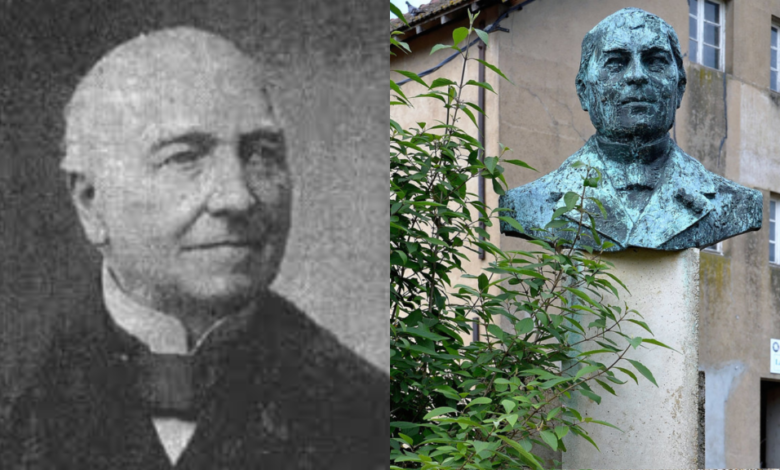Ferdinand Berthier: A Pioneer of Deaf Education and Advocacy
Ferdinand Berthier: A Pioneer of Deaf Education and Advocacy
Introduction
Ferdinand Berthier (French: [fɛʁdinɑ̃ bɛʁtje]; 30 September 1803 – 12 July 1886) was a prominent figure in the history of deaf education and advocacy. Born in the early 19th century, Berthier was a trailblazer in promoting deaf culture and identity. His work as an educator, intellectual, and political organizer made significant contributions to the lives of deaf individuals in France and beyond.
Early Life and Education
Ferdinand Berthier was born in Louhans, France, on 30 September 1803. He became deaf at an early age, though the exact cause of his deafness is not well-documented. Despite this challenge, Berthier demonstrated exceptional intelligence and determination.
- Birth Date: 30 September 1803
- Place of Birth: Louhans, France
- Early Deafness: Cause unknown
Education at the Institut National des Jeunes Sourds de Paris
Berthier’s parents enrolled him at the Institut National des Jeunes Sourds de Paris, the first public school for the deaf in the world, founded by Abbé Charles-Michel de l’Épée. At this institution, Berthier received an education that was both rigorous and tailored to his needs as a deaf student.
- Institute: Institut National des Jeunes Sourds de Paris
- Founded by: Abbé Charles-Michel de l’Épée
Career and Contributions
Educator and Intellectual
After completing his education, Berthier became a teacher at the same institute where he had studied. He quickly distinguished himself as a skilled educator and a passionate advocate for the deaf community.
- Role: Teacher at the Institut National des Jeunes Sourds de Paris
- Contribution: Promoted the use of sign language and deaf education
Political Organizer and Advocate
Berthier’s influence extended beyond the classroom. He was actively involved in political and social movements aimed at improving the rights and recognition of deaf individuals. He organized the first International Congress of the Deaf in 1878, which was a significant milestone in the global deaf community’s efforts to gain recognition and rights.
- International Congress of the Deaf: Organized in 1878
- Advocacy: Worked towards deaf rights and recognition
Champion of Deaf Culture
Berthier was one of the earliest champions of deaf identity and culture. He believed in the importance of sign language and the unique cultural identity of the deaf community. His efforts laid the foundation for future generations of deaf activists and educators.
- Cultural Advocacy: Promoted deaf culture and sign language
Ferdinand Berthier’s Literary Works
Berthier was also an accomplished writer. He authored several books that addressed issues related to deafness, education, and the rights of deaf individuals. His works remain important references in the field of deaf studies.
Notable Books by Ferdinand Berthier
- “Memoirs of the Abbé de l’Épée”: A tribute to his mentor and the founder of the Institut National des Jeunes Sourds de Paris.
- “History of Deaf-Mutes and Deaf-Mute Instruction”: A comprehensive overview of the history and development of deaf education.
- “The Deaf and Dumb in France”: An exploration of the lives and conditions of deaf individuals in France.
Personal Life
Age and Personal Milestones
Ferdinand Berthier lived a long and fulfilling life. He was deeply involved in his work until his later years, continually advocating for the rights and recognition of the deaf community.
- Age: Lived to be 82 years old
- Personal Milestones: Significant contributions to deaf education and advocacy
How Did Ferdinand Berthier Die?
Ferdinand Berthier passed away on 12 July 1886. The cause of his death is not well-documented, but his legacy lives on through his contributions to the deaf community and the field of deaf education.
- Date of Death: 12 July 1886
- Cause of Death: Not well-documented
Legacy and Impact
Lasting Contributions
Berthier’s impact on the deaf community and the field of deaf education is profound. His advocacy for the use of sign language and the recognition of deaf culture has had lasting effects, influencing generations of educators and activists.
- Advocacy for Sign Language: Pioneered the recognition and use of sign language in education
- Influence: Inspired future generations of deaf activists and educators
Commemoration and Recognition
Ferdinand Berthier is remembered as a key figure in the history of deaf education. His efforts are commemorated by numerous institutions and organizations dedicated to the advancement of deaf rights and education.
- Institutions and Organizations: Numerous institutions recognize Berthier’s contributions
FAQs About Ferdinand Berthier
Who was Ferdinand Berthier?
Ferdinand Berthier was a French deaf educator, intellectual, and political organizer in the 19th century. He was a key advocate for deaf culture and the use of sign language in education.
What were Ferdinand Berthier’s notable contributions?
Berthier’s notable contributions include organizing the first International Congress of the Deaf, advocating for the use of sign language, and writing important works on deaf education and culture.
What books did Ferdinand Berthier write?
Berthier authored several significant books, including “Memoirs of the Abbé de l’Épée,” “History of Deaf-Mutes and Deaf-Mute Instruction,” and “The Deaf and Dumb in France.”
How did Ferdinand Berthier die?
Ferdinand Berthier died on 12 July 1886. The specific cause of his death is not well-documented.
How old was Ferdinand Berthier when he died?
Ferdinand Berthier was 82 years old at the time of his death.
Conclusion
Ferdinand Berthier’s life and work had a significant impact on the deaf community and the field of deaf education. His dedication to promoting deaf culture, sign language, and the rights of deaf individuals has left a lasting legacy. As an educator, writer, and advocate, Berthier’s contributions continue to inspire and influence the deaf community and those who work in the field of deaf education. His legacy is a testament to the power of advocacy and the importance of recognizing and celebrating diverse identities and cultures.




